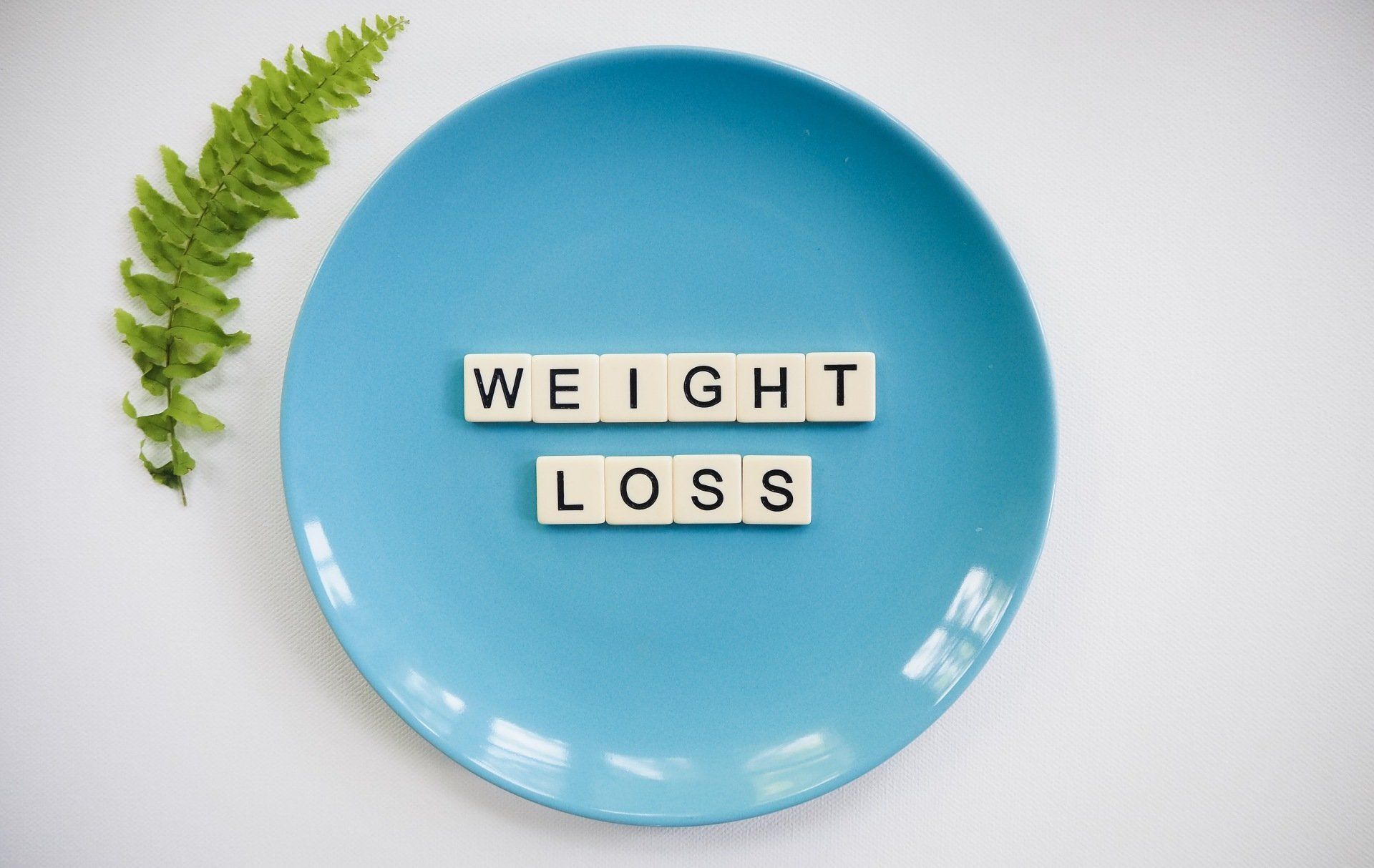The negative side of the keto diet – is it really bad for you?
Is keto bad for you? Keto diets are good for durable weight loss, but some warn about harmful effects. Learn more about the facts. photo credit: emiliano-vittoriosi-703094-unsplash
Is the Keto diet bad?
It is great for weight loss, but "I heard so many bad things about it". We know about the benefits, but lately questions about keto being a harmful diet, has surfaced. I, personally am pleased about how the keto diet has taken on new popularity, both in the USA and abroad. Having taken an interest in this topic since 2012, I am happy to share what I know so far.
Will the keto diet shorten my life?
This year, the highly respected medical journal “LANCET PUBLIC HEALTH” made headlines when they published this article https://www.ncbi.nlm.nih.gov/pubmed/30122560
This article is about "low carbohydrate" diets, and how they think it shortens lifespan. The authors are saying that people should avoid low carbohydrate diets, and to focus instead on plant-based foods instead of meat, eggs, cheese, and protein.
In this observational study, 15,400 people’s past diets were examined and they found that people whose diets both low (< 40% energy) and high (>70% energy) in carbohydrates, were more likely to die, and they concluded that the people who ate moderate amounts of carbohydrates, lived the longest. They also concluded that people who ate meat, cheese, poultry, beef, lamb and chicken did worse in terms of shortened lifespan compared to people who ate plants, legumes, vegetables, and nuts.
Needless to say, the pro-low carbohydrate researchers, including myself, lost no time in examining the details of this study and responding to the editor.
The Lancet journal’s low vs moderate carbohydrate diet has flaws
- The data was based on only two questionnaires, which were spaced several years apart. Basing your data on the memory of a dieter, and asking them to recall how many cups of milk or how many pieces of fruit they consumed days or weeks ago, is going to be subject to memory lapses and inaccuracies.
- The low carbohydrate diet food items were NOT low carb. The people who they claimed ate low carbohydrate diets, were actually consuming well over 140 grams of carbohydrates a day. How can you call this low carb? I would say this borders on moderate to high carb!
- If you examined the food items in the low carbohydrate group, there were items such as fruit, chocolate, and ice cream. When were these foods part of a low carbohydrate diet?
Sadly, this article got much-needed press exposure and was published last September 2018.
I wrote a letter to the editor, in response to this. You can read my letter here.
In a nutshell, I pointed out the glaring flaws in this study, and why this study should not jump to the conclusion that low carb, high-fat diets are bad.
https://www.thelancet.com/journals/lanpub/article/PIIS2468-2667(18)30207-X/fulltext
Will the keto diet cause kidney stones?
Uric acid will rise, but in our study, it was only for a few days, then it went back to normal. Kidney tests remained stable. In another study, uric acid was increased. They did not detail whether this was temporary. Since the keto diet does have a diuretic effect, do try to drink more fluids and keep hydrated.
Will the Keto Diet cause life-threatening ketoacidosis?
There is a concern for developing too much blood acidity. Diabetics especially are prone to going into a state where the body creates excessive ketones, usually triggered by a given stress (surgery, infections, trauma). However, when diabetics go on a low carbohydrate diet such as the ketogenic diet, this causes nutritional ketosis. Nutritional ketosis is an entirely different entity and cannot be compared to life-threatening diabetic ketoacidosis. The levels of ketones in dietary ketosis are way below the levels that we see in uncontrolled diabetes.
In a study of obese patients who followed the keto diet for four months, researchers found no changes in acidity or bicarbonate blood levels. Fortunately, no increased risk of ketoacidosis was found. (Gomez-Arbelaez, Crujeiras, et al. 2017)
Will I lose muscle mass while on a keto diet? Isn't weight loss bad if you have cancer?
Tisdale examined the effects of a high-fat diet on rats with transplanted colon cancer. He found that this diet reversed weight loss and reversed muscle wasting. (Tisdale, Brennan et al. 1987)
Fearon however, found the opposite. Ketosis had no effect on rats with transplanted carcinoma sarcoma (Fearon, Tisdale et al. 1985)
Another European study gave volunteers 21 days of a very low carbohydrate diet and found no serious changes in muscle mass. (Colica, Merra et al. 2017)
This is what we call mixed data. I wrote about weight loss in a previous topic. You can read more here
Will the keto diet damage my kidneys or liver?
The same European study found no changes in bone density, kidney, liver panels. (Colica, Merra et al. 2017). In the published US studies, liver and kidney function remained stable.
Will the keto diet cause heart disease and will the fat and cholesterol clog my arteries?
There is conflicting, if not absence, of evidence that heart disease or harmful cholesterol levels will result from following a keto diet.
Oxidized LDL or bad cholesterol
Saturated fats are solid at room temperature, but are in liquid form at body temperature. To think that fats will simply plug arteries is rather simplistic. The levels of low-density lipoprotein or LDL cholesterol alone is not the problem. Rather, it is the “oxidized” LDL that can be harmful. https://www.ncbi.nlm.nih.gov/pmc/articles/PMC3315351/
LDL when oxidized, can result in the hardening of the arteries.
Total versus Good HDL cholesterol ratio also can predict heart disease risk
The total level of LDL cholesterol alone is not enough to predict heart disease. What is also important is the ratio between the total cholesterol, and the HDL (good cholesterol) is also important. The higher the ratio, the higher the risk. https://www.mayoclinic.org/diseases-conditions/high-blood-cholesterol/expert-answers/cholesterol-ratio/faq-20058006
In this study, a high carbohydrate, low fat diet resulted in decreases in total and LDL cholesterol. While this might seem like a good thing, there was also a greater decrease in HDL (good) cholesterol. This affected the total cholesterol: HDL ratio, for the worse. Also, the higher-carb group had higher triacylglycerol levels which is a risk factor for heart disease, diabetes and metabolic syndrome.(Ma, Li et al. 2006)
Oxidized lipoprotein was higher in high carb dieters
In another study of 63 healthy volunteers, half of the volunteers were fed a high fat, low carb diet (keto), and the other half fed a high carbohydrate, low-fat diet. After 4 weeks, the group fed the high carbohydrate diet /low-fat diet had much higher levels of oxidized lipoprotein compared to the group fed high fat/low carb. (Faghihnia, Tsimikas et al. 2010)
In a European study by Colica et al, the ketogenic diet did not cause changes in cholesterol or lipid blood tests.
Cholesterol levels remained stable even after 8 to 16 weeks on keto
The Veterans ketogenic diet study found stable lipid panels in almost all the patients who did the modified keto diet over 8 to 16 weeks. One patient had an increase in LDL cholesterol while another had a significant drop. The rest of the participants had no change in LDL cholesterol. (Tan-Shalaby 2017)
Keto diets keeps glucose steady. Increases total and good (HDL) cholesterol
A study in Ireland recruited 30 people and put half of them on a low carbohydrate, high-fat diet. The other half was on a standard diet. After three weeks, the total cholesterol was higher in the low carb, high fat group. The low carb high fat group also had higher levels of the HDL or good cholesterol. Uric acid was increased, but the blood tests that measured C-reactive protein showed no increase in body inflammation. Glucose levels also did not drop, and remained stable. The LDL cholesterol levels were more erratic. For some, the increase was minute (5%), while for others, the increase was huge ( 107%). (Retterstol, Svendsen, et al. 2018)
Bad breath and constipation
As if the above were not enough, now we have to deal with "ketone breath." Once ketosis is achieved, some of the ketones escape as the fruity breath odor of acetone. Mouthwash might be a simple solution.
Keto diets can also cause constipation, which is due to low fiber intake. Adding more fiber while continuing to count carbs, is reasonable. Try adding MCT ( medium chain triglyceride) oil or coconut oil to your diet. This move might help improve some of that constipation since MCT oil does cause the opposite effect, which is some diarrhea. Increase your fluid intake.
Summary
While there are a few annoying side effects, (bad breath and constipation), most of the negatives to the keto diet are either manageable or unfounded.
The evidence that low carbohydrate diets are linked to heart disease is actually very weak. The studies that were published usually centered around linking high-fat diets and high protein diets to heart disease. But if you examine those studies, you will find that the people who ate high fat or high protein/meat diets, were also eating high or moderate amounts of carbohydrates.
The high fat/protein/meat studies from the 1980s and 1990s, all do not have patients on low carb. Low carb/keto diets were not yet in fashion at the time!
While all this is interesting, the jury is still out. But emerging data in favor of the keto / low carb, the high-fat approach seems to indicate to me that it is the combination of high fat plus moderate or high carbohydrate, which may be harmful. Not just the fat alone.
References
Colica, C., G. Merra, A. Gasbarrini, A. De Lorenzo, G. Cioccoloni, P. Gualtieri, M. A. Perrone, S. Bernardini, V. Bernardo, L. Di Renzo and M. Marchetti (2017). "Efficacy and safety of very-low-calorie ketogenic diet: a double blind randomized crossover study." Eur Rev Med Pharmacol Sci 21(9): 2274-2289.
Faghihnia, N., S. Tsimikas, E. R. Miller, J. L. Witztum and R. M. Krauss (2010). "Changes in lipoprotein(a), oxidized phospholipids, and LDL subclasses with a low-fat high-carbohydrate diet." J Lipid Res 51(11): 3324-3330.
Fearon, K. C., M. J. Tisdale, T. Preston, J. A. Plumb and K. C. Calman (1985). "Failure of systemic ketosis to control cachexia and the growth rate of the Walker 256 carcinosarcoma in rats." Br J Cancer 52(1): 87-92.
Gomez-Arbelaez, D., A. B. Crujeiras, A. I. Castro, A. Goday, A. Mas-Lorenzo, A. Bellon, C. Tejera, D. Bellido, C. Galban, I. Sajoux, P. Lopez-Jaramillo and F. F. Casanueva (2017). "Acid-base safety during the course of a very low-calorie-ketogenic diet." Endocrine 58(1): 81-90.
Ma, Y., Y. Li, D. E. Chiriboga, B. C. Olendzki, J. R. Hebert, W. Li, K. Leung, A. R. Hafner and I. S. Ockene (2006). "Association between carbohydrate intake and serum lipids." J Am Coll Nutr 25(2): 155-163.
Retterstol, K., M. Svendsen, I. Narverud and K. B. Holven (2018). "Effect of low carbohydrate high fat diet on LDL cholesterol and gene expression in normal-weight, young adults: A randomized controlled study." Atherosclerosis 279: 52-61.
Tan-Shalaby, J. (2017). "Ketogenic Diets and Cancer: Emerging Evidence." Fed Pract 34(Suppl 1): 37S-42S.
Tisdale, M. J., R. A. Brennan and K. C. Fearon (1987). "Reduction of weight loss and tumour size in a cachexia model by a high fat diet." Br J Cancer 56(1): 39-43.






